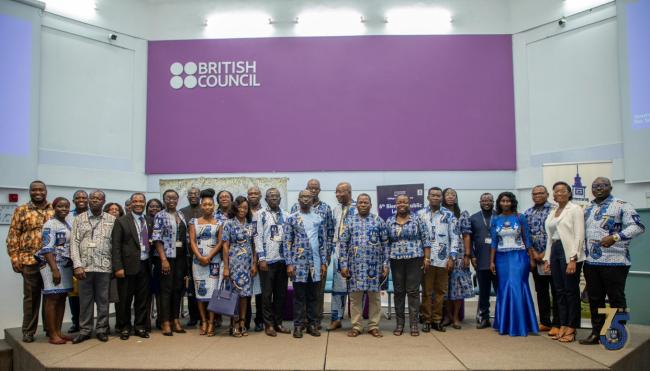College of Health Sciences 6th Biennial Lecture Addresses Devastating Effects of Galamsey on Environment and Public Health

The College of Health Sciences at the University of Ghana hosted its 6th Biennial Public Lecture, focusing on the theme: "Environmental and Health Impact of Galamsey: The Real Cost of that Gold." The lecture, held at the British Council Hall in Accra, was part of activities marking the 75th Anniversary celebration of the University.
In his welcome remarks, the Provost of the College of Health Science (CHS), Prof. Julius Najah Fobil, highlighted the significant environmental and health consequences of illegal gold mining, known as galamsey, on the nation's well-being and sustainable future. He emphasised the ecological devastation, pollution of water bodies, and degradation of fertile lands caused by galamsey, urging prompt action to mitigate these effects.
Prof. Fobil also noted the use of toxic substances such as mercury and cyanide in the extraction process, which poses threats to both miners and nearby communities, emphasising that, "The contamination of water resources and resultant health hazards are affecting countless individuals, especially the most vulnerable members of society."
The Vice-Chancellor, Prof. Nana Aba Appiah Amfo, who chaired the lecture, stressed the need to engage both internal and external stakeholders in addressing vital research areas and persistent societal concerns. She expressed deep concern about the devastating effects of galamsey, underlining the immediate need for attention to the environmental and health impacts of this illegal mining practice in Ghana.
In his presentation as one of the Speakers at the Lecture, Prof. Richmond Aryeetey, Head of the Department of Population, Family, and Reproductive Health at the University of Ghana School of Public Health, discussed the broader health implications of galamsey. He highlighted that “it extends beyond miners to affect a wider population through contaminated water and food sources.”
Prof. Aryeetey also stressed the alarming impact of Non-Communicable Diseases (NCDs) as the primary culprits behind ill health and a significant number of deaths worldwide, laying emphasis on the fact that Mercury, a byproduct of galamsey, poses a significant public health risk in Ghana.
To address these challenges, Prof. Aryeetey proposed a comprehensive strategy involving risk identification, risk management, policy development, and dietary changes to reduce Mercury contamination.
On her part, the second Speaker at the Lecture, Dr. Anita Ago Asare, a Public Health Physician, discussed the infectious disease risks associated with galamsey mining communities, stressing the need for enhanced capacity among healthcare workers in these areas to manage infectious disease risks effectively. She called for collaboration among academia, industry, government, and health organisations to mitigate these risks and ensure the health and well-being of affected communities.
In closing remarks, Prof. Nana Aba Appiah Amfo reiterated the significance of collaboration, open discussions, and meticulous planning to identify sustainable solutions to the challenges posed by galamsey. She thanked the officials of the College for organising the lecture.
The event saw active participation from academics, students and the general public, along with key figures from the University of Ghana's leadership and the College of Health Sciences.